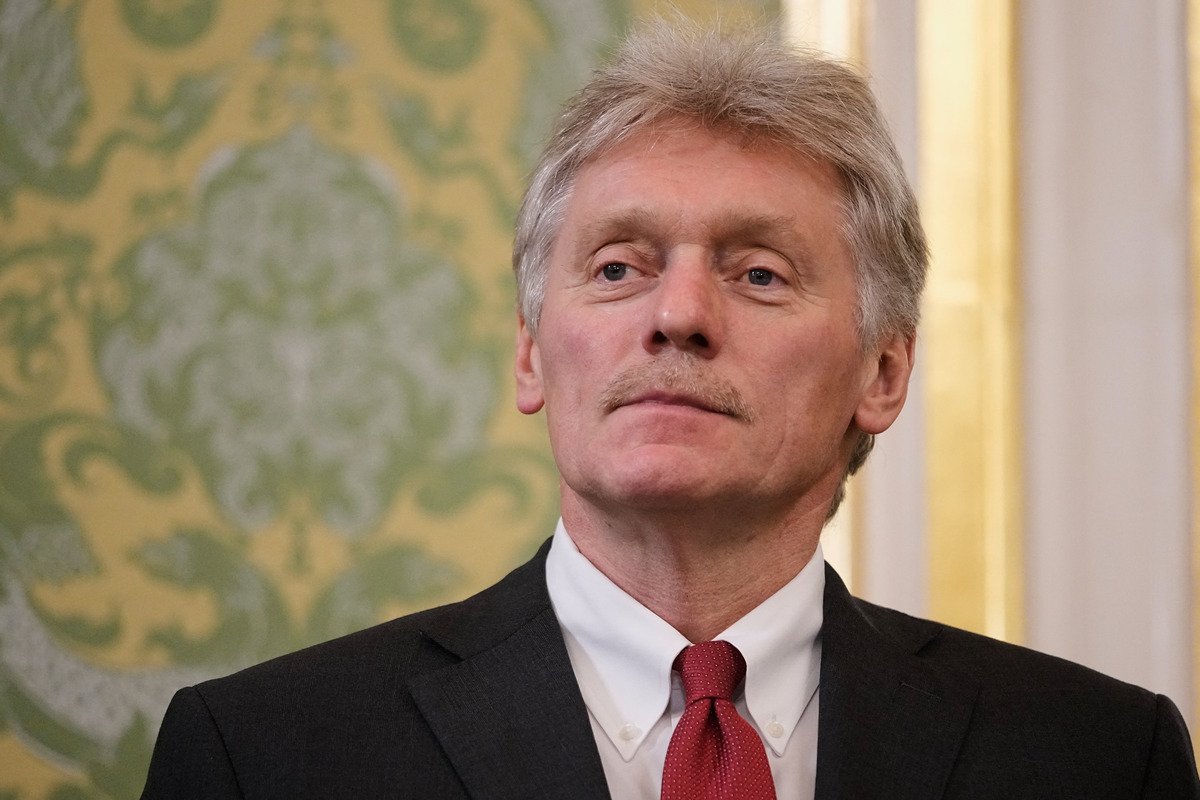Russia issues nuclear weapons warning: 'No limits'
Russia "no longer has any restrictions" on deploying previously-banned types of conventional and nuclear missiles, the Kremlin said on Tuesday, vowing to "take appropriate measures if necessary."
"Russia no longer sees itself as limited" on these types of weapons, Kremlin spokesperson Dmitry Peskov said, according to remarks published by Russian state news agency TASS. "Russia considers itself entitled to take appropriate measures if necessary, to take appropriate steps."
Moscow's Foreign Ministry had said in a statement on Monday it "no longer considers itself bound" by previous restrictions on U.S. and Russian missiles with a range between 500 and 5,500 kilometers.
Why It MattersThen-U.S. President Ronald Reagan and former Soviet Union leader Mikhail Gorbachev signed an agreement in 1987 known as the Intermediate-Range Nuclear Forces (INF) Treaty, which banned nuclear and conventional missiles able to strike between these distances.
The treaty is no longer in force and does not bind either state.
 Kremlin spokesman Dmitry Peskov attends talks between Russian President and Mali's junta leader at the Kremlin in Moscow on June 23, 2025.
Kremlin spokesman Dmitry Peskov attends talks between Russian President and Mali's junta leader at the Kremlin in Moscow on June 23, 2025.
PAVEL BEDNYAKOV/POOL/AFP via Getty Images
Kremlin spokesman Dmitry Peskov attends talks between Russian President and Mali's junta leader at the Kremlin in Moscow on June 23, 2025.
Kremlin spokesman Dmitry Peskov attends talks between Russian President and Mali's junta leader at the Kremlin in Moscow on June 23, 2025.
PAVEL BEDNYAKOV/POOL/AFP via Getty Images
The U.S. formally pulled out of the INF Treaty in mid-2019, during President Donald Trump's first term in office. Washington had accused Russia of breaching the terms of the agreement by developing the SSC-8, also known as the 9M729 ground-launched cruise missile.
NATO also accused Russia of violating the treaty, which Moscow denied. Both sides had suspended participation months earlier.
Russia then said it would not deploy missiles banned under this treaty "until US-manufactured missiles of similar classes" are rolled out, known as the INF moratorium.
What To KnowRussian President Vladimir Putin said on August 1 Moscow would deliver Oreshnik intermediate-range ballistic missiles to Belarus by the end of 2025. Russia fired the experimental missile at central Ukraine in November 2024.
"The Oreshnik, if it is deployed in numbers, would certainly be a violation," William Alberque, a former head of NATO's nuclear non-proliferation center currently with the Pacific Forum non profit, told Newsweek.
The U.S. has deployed its Mid-Range Capability (MRC) missile system to the northern Philippines, which can fire Tomahawk cruise missiles with a range of around 1,000 miles.
An MRC test-fired an SM-6 missile during the recent joint U.S.-Australia military drills, dubbed Exercise Talisman Sabre, which wrapped up on Monday. Soldiers also tested the new Precision Strike Missile (PrSM), a Lockheed Martin-made weapon with an advertised range of over 499 kilometers.
"The United States and its allies have not only openly outlined plans to deploy American ground-based intermediate-range missiles in various regions, but have already made significant progress in the practical implementation of their intentions," Russia's Foreign Ministry said on Monday.
Russia is "way ahead" in deploying missiles that would be forbidden under the Cold War-era limitation treaty, said Alberque.
Former Russian President Dmitry Medvedev, now a hawkish figure on Moscow's security council known for bellicose social media posts, said on Monday the statement from the foreign ministry was "the result of NATO countries' anti-Russian policy."
"This is a new reality all our opponents will have to reckon with," Medvedev said in a statement posted to X in English. "Expect further steps."
Medvedev has been locked in a direct exchange with U.S. President Donald Trump, the Republican saying he would redeploy two U.S. nuclear submarines after "highly provocative statements" from Medvedev.
Medvedev had said in late July that Trump was "playing the ultimatum game with Russia," adding: "Each new ultimatum is a threat and a step towards war."
Trump called Medvedev a "failed former President" and warned he was "entering very dangerous territory."
"If some words from the former president of Russia trigger such a nervous reaction from the high-and-mighty president of the United States, then Russia is doing everything right and will continue to proceed along its own path," Medvedev said in a separate post on Thursday.
Medvedev then alluded to Russia's "dead hand" mechanism, which is designed to launch nuclear weapons even if Russia's most senior commanders are taken out by an enemy attack.
What People Are SayingPeskov on Monday distanced the Kremlin from Medvedev's comments, saying Moscow was "everyone should be very careful about nuclear rhetoric."
Russia is "way ahead" in deploying missiles that would be forbidden under the Cold War-era limitation treaty, Alberque told Newsweek.
What Happens NextTrump shortened his 50-day deadline for a ceasefire deal to August 8 after saying he had seen no progress toward an agreement despite months of U.S. efforts to broker an end to the war.
Trump's special envoy, Steve Witkoff, is expected to visit Moscow later this week, although it is not clear whether his trip will yield progress toward a ceasefire.